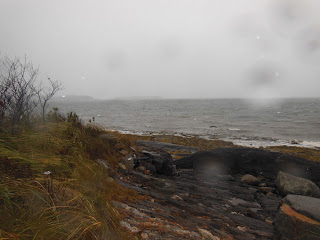A while ago, the Spousal Unit and I were talking about our
high school days, and about doing sports in particular. (I was a track rat who
specialized in throwing heavy objects because I was even worse at jumping and running; he was a swimmer and water polo
player.) I love to hear tales of his wild days, and the torturous regime of
practices his coach put him through. One of his teammates subsequently tried
out for the U. S. water polo team, and the whole group often went to the
regional championships in California.
I asked him, “Do you miss it?”
“Well,” he said, “I was never very good.”
“That’s not what I asked. Do you miss playing?”
He was quiet for a moment and then said, “Yeah. Yeah, it was
fun, and I miss it.”
I once read that, if you ask a group of kindergarteners if
they’re artists or dancers or singers, they will generally agree in a heartbeat
that they are, in fact, totally talented. And they have fun with it. But if you go back to the same group of kids a few
years later, and ask which of them identifies as an artist, very few will raise
their hands.
I think that’s sad. (I also have this cockamamie theory that
our warped view of talent and creativity worsens the epidemic of mental health
and substance abuse issues in our society, but that’s probably a post for
another day.)
A lot of us, like my spouse, have absorbed the idea that
after a certain point, if you’re not demonstrably good at something, you lose the right to enjoy it. You’re off the
team, as it were. Maybe it’s a self-inflicted judgment, or maybe a host of bad
reviews and snarky comments have worn down hope. And attempting any kind of
creativity as a business proposition is its own special kind of hell. Trying to
balance the need to make things and the need to eat, putting your deepest and
most fragile self on display and hoping no one utterly stomps on it . . . That’s
a tough life.
Yeah, that.
I’m small potatoes in the writing world, but I’ve listened
to a lot of other writers—amazing writers, people you admire—and they all
struggle with keeping that love of creating alive. Maybe there’s a point where
someone is so successful and popular and beloved that they never, ever feel bad
about their work. But I haven’t met that writer yet, and I kind of suspect that
if I did, that writer would be, you know, dead.
In some ways, this is a great time to be creative. You can
reach an audience anywhere in the world, make connections and collaborations to
an almost unlimited degree. At the same time, it’s easy to feel lost, with the
relentless sense of competition, calculated cruelty, and looming invisibility,
especially when you factor in the tendency of every artist ever to feel inadequate to the task.
My first crochet project--sort of oddly shaped
I think I mentioned that I’ve been learning to crochet over
the past few months. Slowly, and badly. The Spousal Unit tells me scallops are ‘in,’
but I think he’s just being kind about the wobbly edges of my projects. But you
know what? I’m having fun crocheting badly. I am sucking magnificently, with some pretty yarn and shiny hooks. It’s good to
have a reminder that being brilliant is not the be-all-and-end-all of existence,
and learning to love new things and take risks should be a big part of life.
What if we all made the choice to do what we love, regardless of whether or not we met anyone's standards--even our own--of 'good enough'? And what if we reached out to others and encouraged their efforts, not with false praise, but genuine affection and appreciation? If we're all going to suck anyway, what if we did it with joy and enthusiasm?
So while I’ve recommitted to growing and improving as a
writer, I’ve also given myself permission to do it badly and enjoy it. Unlike
ballet—or brain surgery—writers get unlimited revisions to make things better.
The magic happens as much from love and joy as from hard work. I don’t want to
forget that again.
I'm learning to be okay with this.













